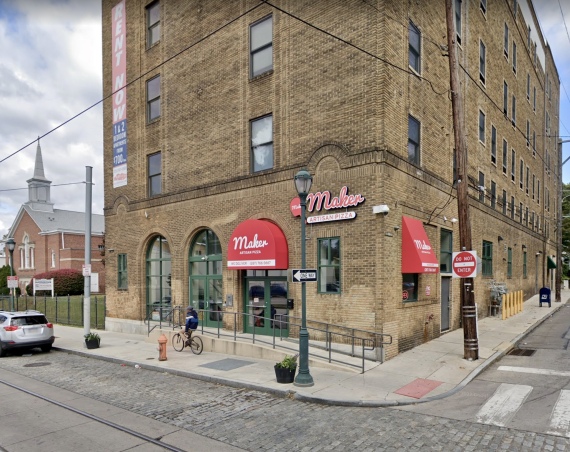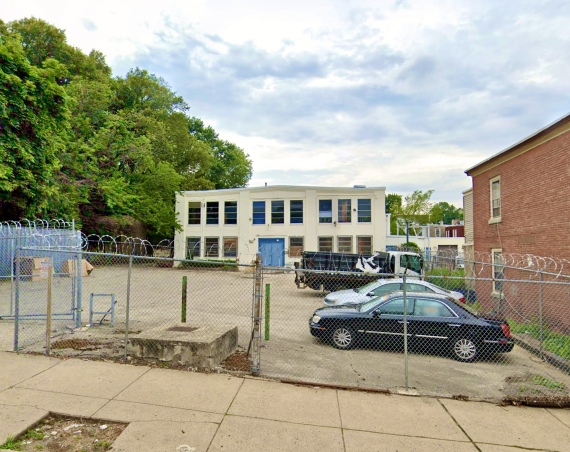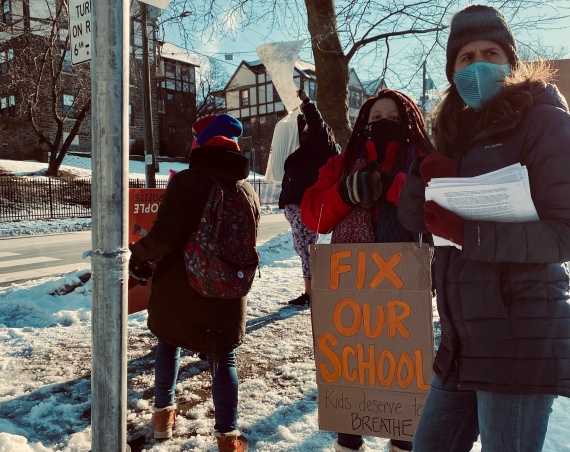Germantown’s LGBTQ+ histories are often overlooked in discussions of its past, with more attention given to the country’s formation and racial justice. However, this Pride month, the Germantown Info Hub wants to share some lesser-known LGBTQ+ facts about the community and some of its history-makers.
These facts remind us of the progress made and instill a sense of pride in all those who call Germantown “home.”
John Fryer, the psychiatrist who challenged homosexuality as a “disorder.”
Disguised as “Dr. Henry Anonymous,” John Fryer challenged the designation of homosexuality as a mental disorder at the 1972 American Psychiatric Association (APA) convention. In fear of having his medical license revoked, he wore the disguise and pronounced, “I am a homosexual. I am a psychiatrist.” He cited the harsh treatment of other psychiatrists and patients and pleaded with other APA members to think about how the classification is a detriment to humanity.
Homosexuality was delisted as a mental illness in 1973. Fryer passed away in 2003. In 2022, his home at 138 W. Walnut Lane, where he lived from 1972 until his death, was added to the historic register. Though the Pennsylvania historical marker about him is in Center City.
Richard Gayer, was the first openly gay man to receive a security clearance.
Before 1974, no known gay person could access a security clearance. Security clearances allow specific individuals to access classified government information. Richard Gayer had previously received approval in 1961. Still, he lost it after he listed himself as a member of the Janus Society, an group then referred to as a homophile organization, on paperwork regarding his clearance. When investigators questioned him about his homosexuality, he refused to answer questions beyond disclosing his sexuality, leading to them revoking his license.
He would go to court to appeal the decision and make security clearances accessible for gay men in two trials: Gayer v. Laird (1971) and Gayer v. Schlesinger (1973). Gayer would receive his license again, but under the circumstances, he had to answer all the questions he refused. In 1995, President Bill Clinton signed an executive order ending a ban on security clearances for gay workers.
Gayer lived at 5910 Greene Street from 1964-67. He details more of his time in Germantown and memories of Philadelphia in an interview with OutHistory.
Anita Cornwell, author of the first-ever published collection of poems by Black lesbians.
Anita Cornwell was a remarkable author and lesbian feminist who wrote the first collection of essays by an African-American lesbian. Her book, Black Lesbian in White America, was published in 1983 and played a significant role in bringing to light the experiences of Black lesbians in a society that often silenced their voices. Anita Cornwell is one of many Black queer writers whose work helped to pave the way for greater LGBTQ+ visibility and representation.
Cornwell lived throughout Philadelphia for a significant portion of her life, even receiving a degree from Temple University in journalism and social services in 1948. Cornwell passed away on June 5, 2023, at age 99, in her Germantown home.
Germantown has been a notable haven for lesbians since the 1940s.
While researching queer histories in Germantown and Philadelphia in general, a common theme of lesbians in Northwest Philadelphia emerged. Germantown, Mt. Airy, and Chestnut Hill are cited as some of the most common neighborhoods where queer women settled. In contrast, queer men would live around the Center City and South Philly areas, particularly during the 1970s.
Many works cite North Philly and West Philly as havens for queer Black folks, as there was still racial segregation within LGBTQ spaces.
Religious institutions have been noted for their LGBTQ acceptance.
Germantown has lots of Christian churches of many denominations scattered throughout the neighborhood. As you stroll along Germantown Avenue, you can easily spot three different places of worship.
ome churches in Germantown have been noted for their open acceptance policies, and some have paid for them. Some of those incidents include:
- In 2004, the United Methodist Church voted 7-6 to defrock associate pastor Rev. Irene Elizabeth Stroud of First United Methodist Church of Germantown (FUMCOG) after she announced that she was living in a committed relationship with her partner. FUMCOG allowed her to continue working as a lay employee without clergy status.
- Eastern District Conference of the Mennonite Church severed ties with the Germantown Mennonite Church (GMC). While pastor Amy Yoder McGloughlin said they gave no reason for the ended relationship, she told WHYY she suspects it was because they accepted LGBTQ members.
For neighbors looking to learn more queer histories throughout Philadelphia, including more on Germantown, use this tool from Drexel University and Bob Skiba, archivist for William Way Community Center.



